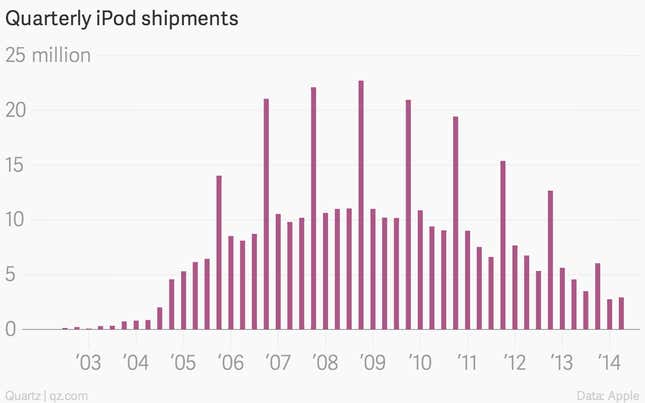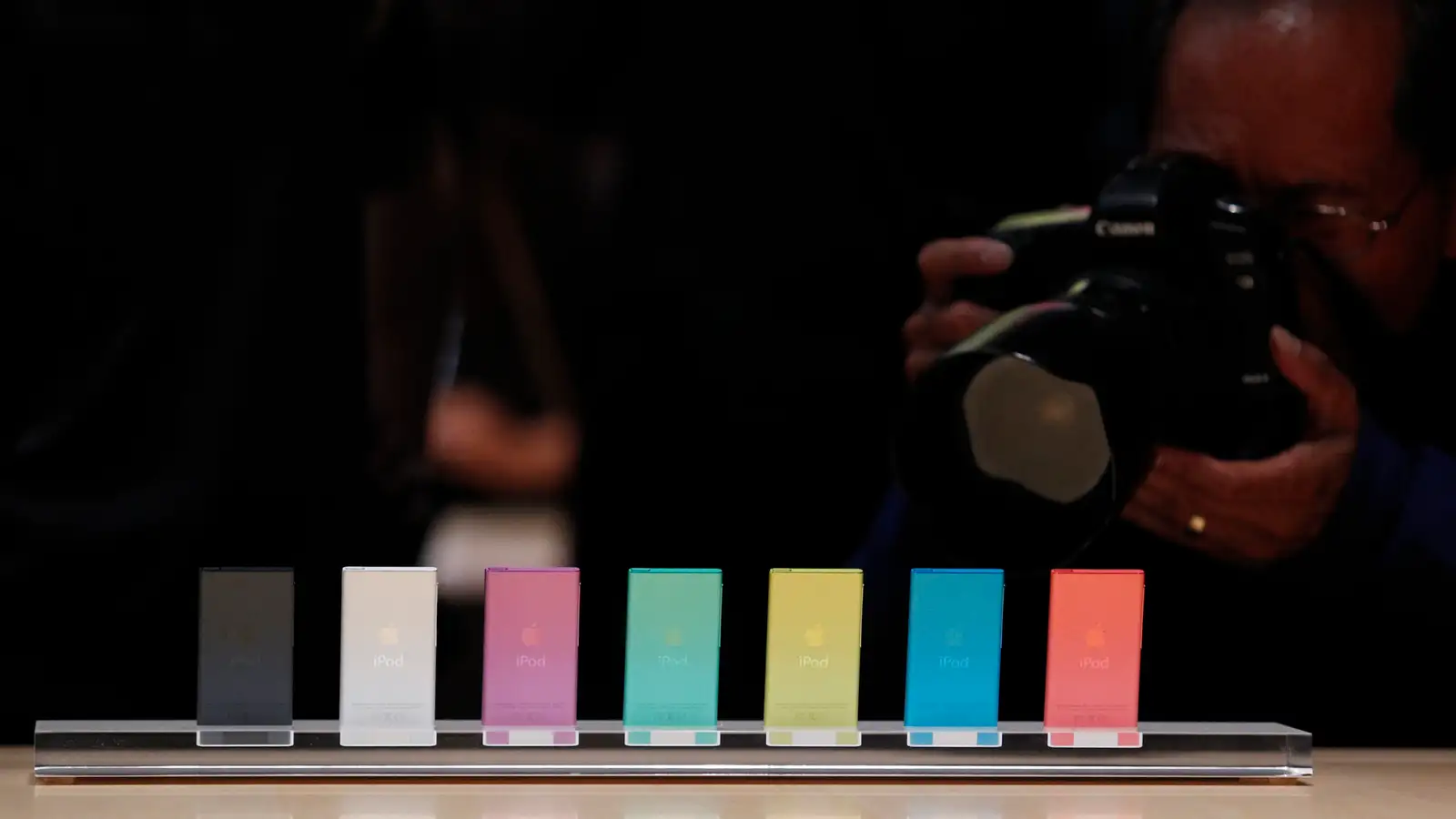“A nice feature for Macintosh users … but to the rest of the Windows universe, it doesn’t make any difference,” reads an unenthused quote, made by an e-commerce analyst, in the New York Times’ review of Apple’s original iPod.
The iPod—proudly unveiled with a flourish by company founder Steve Jobs in the fall of 2001, and marketed by Apple as a “breakthrough MP3 player“—turns 15 years old this week. In that decade and a half, it’s changed the experience of audio entertainment forever, and served as a template for many of the company’s other revered innovations (iPhone, anyone?) It was Apple’s first consumer mega-hit. It sparked Apple’s resurgence, now seen as one of the biggest comebacks in business history.
“With iPod, listening to music will never be the same,” Jobs insisted in 2001. He went as far as to meticulously curate 20 CDs on the demo iPods given to journalists.
The rest of the world? Not so easily convinced.
Wired, in its 2001 review of the iPod, skeptically noted the presence of ”many other digital music players on the market, many of them for a fraction of the price.”
“It lacks too many basics,” IGN’s review concluded.
“‘Breakthrough digital device’ might be pushing it,” a New York Times technology reporter sighed, pointing to the iPod’s rigid, closed design and high price point. The newspaper also predicted the product would have a “limited potential audience” of seven million Macintosh users.
At the time, Apple hadn’t yet introduced a version of the music player compatible with the Windows operating system, which 90% of people used; the iPod was also meant as a companion device for Apple’s iTunes software, which—though it would later drive the iPod’s massive success—was considered by many people to a somewhat clunky music storage system.
Apple users themselves were even more dismissive of the product. On a MacRumors discussion forum immediately after the product launch, dozens of people called the iPod “ridiculous,” “pathetically expensive,” and a gadget “without a future.”
There were, however, some positive notes. Most newspapers and magazines did nod to the iPod’s sleek look and speedy delivery of audio as points of interest. One reviewer, CNET editor Eliot Van Buskirk, suggested with almost eerie prescience:
The iPod … is more than an MP3 player; it’s a prototype of the data wallets that we’ll all carry around within the decade. These devices will sync info between multiple machines and allow for music and video collections to be carried around everywhere. They won’t have a complicated interface, but they will include a variety of ports for connection to keyboards, Webcams, monitors, networks, cell phones, PDAs, stereos, headphones, video goggles, GPS modules—whatever peripheral you can think of.
People around the world eventually caught on to the iPod craze. And both Van Buskirk and Steve Jobs were right.





